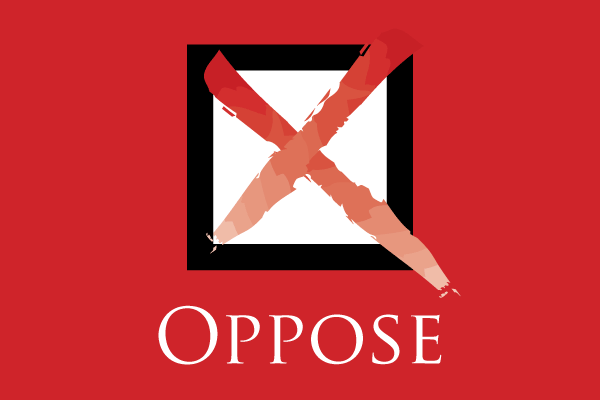
Strong opposition from the California Chamber of Commerce and allied groups stopped a number of harmful proposals in Senate and Assembly fiscal committees on August 15, including many bills that were top priorities for CalChamber members.
“Yesterday was a very good day for California’s business community,” said Ben Golombek, CalChamber executive vice president and chief of staff for policy, the day after the fiscal committees acted. “CalChamber’s efforts led to several bills being abandoned or being amended significantly enough to resolve our concerns during the suspense file process. Some of yesterday’s big wins include stopping or amending down AI bills, labor-backed legislation, broadband, health care and burdensome regulatory proposals, among many others. The CalChamber team did a great job getting our message through to policy makers and making a real difference on behalf of our members.”
CalChamber Wins on Priority Bills
• AB 1757 (Kalra; D-San Jose): Defeated. Website Accessibility. Creates further litigation abuses in California related to online website accessibility, while providing illusory protection against such abuse.
• AB 2239 (Bonta; D-Alameda): Defeated. Slows Broadband Deployment. Slows down the deployment of broadband in California and will likely lead to litigation.
• AB 2374 (Haney; D-San Francisco): Defeated. Joint Liability for Businesses of All Sizes. Originally imposed new statutory joint liability on business of any size that contracts for janitorial services if a contractor violates the Displaced Janitor Opportunity Act and placed new mandates on those businesses that should be assigned to the contractor. Job killer status removed due to May 16, 2024 amendments removing joint liability portion of the bill and making other changes. CalChamber remains opposed unless amended due to the requirement that an awarding authority must provide certain notifications to a union representing another entity’s employees. Oppose Unless Amended.
• AB 2877 (Bauer-Kahan; D-Orinda): Defeated. Restricting Information Available to Train AI. Amends the California Consumer Privacy Act (CCPA) to prohibit a developer, as defined, from using the personal information (PI) of a consumer less than 16 years of age, as specified, to train or “fine-tune” an AI system or service unless affirmative authorization is provided pursuant to the CCPA’s provisions providing opt-out/opt-in rights. Because another pending bill, AB 1949, would also amend the existing opt-out/opt-in rights for minors under that same provision, potentially could apply to any consumer under the age of 18. Even if authorization is received, businesses would be prohibited from using the PI of minors unless they both deidentify and aggregate the data. By limiting inputs, this bill regulates the technology itself, hamstringing developers from appropriately training the technology. Realistically, forces companies to engage in either age verification or not use any PI to train any AI. Even if they are able to age verify consumers, unintended consequences are likely significant, because access to data specific to children and teens is essential to develop tools to provide them unique support for risks and challenges specific to their age groups.
• AB 1791 (Weber; D-San Diego): Defeated. Digital Content Provenance. Mandates removal of certain information from user-generated content; however, technology doesn’t currently exist to do so. Conflicts with other pending legislation.
• AB 2557 (Ortega; D-San Leandro): Defeated. Local Entity Contracts. Significantly limits the ability of public entities to contract with local small businesses or non-profits.
Other Bills Stopped in Fiscal Committees
Among other CalChamber-opposed bills held in the Senate Appropriations Committee were:
• AB 560 (Bennett; D-Ventura): Groundwater Adjudication Proceedings. Imposes new requirements for courts to consult with State Water Board prior to entering a final judgment in a groundwater adjudication, raising questions about role of executive in the judiciary.
• AB 868 (Wilson; D-Suisun City): Burdens on Political Speech: Requires state’s Fair Political Practices Commission (FPPC) to set up massive new database and bureaucracy to manage and compile most digital advertisements, which can already be tracked via Secretary of State.
• AB 1588 (Wilson; D-Suisun City): Affordable Internet and Net Equality Act. Inappropriately complicates state procurement contracts rather than focus on the goal of securing more eligible Californians enroll in the Affordable Connectivity Program (ACP) to get broadband services.
• AB 2421 (Low; D-Silicon Valley): Employee-Union Agent Evidentiary Privilege. Effectively creates a new, broad evidentiary privilege in the public sector that is one-sided and will preclude relevant evidence during litigation or workplace investigations.
Among the CalChamber-opposed bills held in the Assembly Appropriations Committee were:
• SB 308 (Becker; D-Menlo Park): Carbon Dioxide Removal. Duplicates existing programs to create an added layer of compliance.
• SB 697 (Hurtado; D-Sanger): Extreme Increase to Anti-Trust Penalties. Increases certain anti-trust penalties for corporations by 100 times, despite working group on this issue being in progress and complete recommendations for legal updates not yet being released.
• SB 1178 (Padilla; D-Chula Vista): Unfair and Unenforceable Regulation. Attempts to impose California law on facilities outside of the state and nation. Makes industry wholly financially responsible for water quality impairments caused by other sources. Oppose Unless Amended.
• SB 1404 (Glazer; D-Contra Costa): Lobbyist Employer Audits. Substantially raises fees on lobbyists and others to continue to comply with state law.

